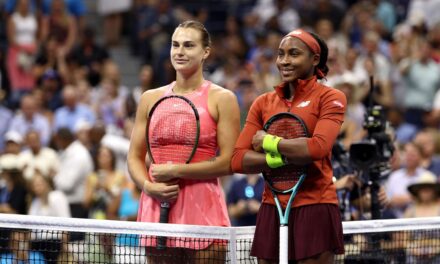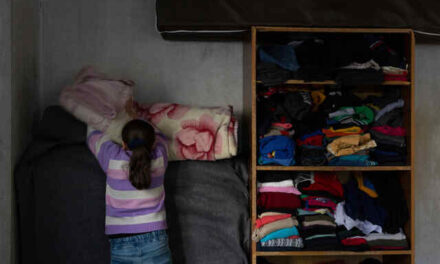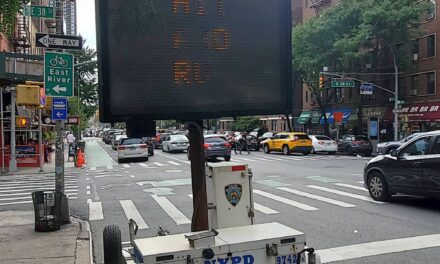It is the legendary image that ushered in the age of the supermodel: Naomi Campbell, Christy Turlington, Linda Evangelista, Tatjana Patitz, Linda Evangelista and Cindy Crawford photographed together by Peter Lindberg for the cover of the January 1990 edition of Vogue.

Now, 33 years later, the image has been recreated for September’s issue of the magazine, and a version of the cover will appear on the UK and US editions with the cover line: “The Greatest of All Time”. It is only missing Tatjana Patitz, who died earlier this year.
Now in their fifties, the four women will also appear in a documentary, The Super Models, on Apple TV in September, re-evaluating the late 1980s and early 90s, when they first began modelling.
A feature in the magazine gives an idea of what the era was like for them, especially after the video for George Michael’s Freedom! ‘90 was released. The video featured all five models, apparently after Michael saw them on the Vogue cover.
“It was insane. We are not the Beatles,” says Evangelista, on the reaction to the video, and the subsequent Versace fashion show finale, in which they lip-synced to the song as they linked arms and strutted down the runway.
Campbell is open about how her life changed with fame – such as when photographers captured her outside a Narcotics Anonymous meeting in 2001. “I was made to feel ashamed of my recovery,” she says. “It wasn’t that I was in hiding, but this is something you talk about when you are ready.”

The women have hit the headlines more recently, too. Last year, Evangelista spoke about how a fat-freezing treatment, CoolSculpting, left her “permanently deformed”, and about the psychological impact of the botched surgery. Campbell, meanwhile, also announced the arrival of her two children in 2021 and 2023 and continues to model on the catwalk for designers including Valentino and Off White. Crawford, meanwhile, is the mother of one of the most popular models of the current generation, Kaia Gerber.
All four women – as well as Patitz, Helena Christensen and Claudia Schiffer – are often considered the first models to become celebrities known outside the fashion industry. The demand for them rocketed in the 90s and Evangelista famously quipped “we don’t wake up for less than $10,000 a day”.
The models experienced fashion during a pre-#MeToo era, working with photographers – including Bruce Weber, Patrick Demarchelier and Terry Richardson – who have since been accused of sexually inappropriate behaviour with models
Speaking to Vogue, all four said they largely avoided sexual exploitation. Crawford says her unsophisticated background helped her, because she wouldn’t go to parties. “I probably missed out on some fabulous opportunities but probably avoided some less than fabulous opportunities as well.”
Campbell spoke out about the racism she experienced in the fashion industry. “Why was it that I was doing the same job as my colleagues and had to take less money?” she asks. “Why was I booked for the shows but not the ads? I was not close-mouthed.” She argues that her background meant she was not sexually exploited as a young woman: “I come from a strong line of Black women, Jamaican women. If something felt wrong, I told it. I spoke up.”
While there have been other famous models since then – Kate Moss and Gisele Bundchen to name two – the supers have remained in the spotlight, and continue to appeal to consumers. In 2017, Versace caused an online frenzy when Campbell, Crawford, Christensen, Schiffer and Carla Bruni appeared in the catwalk show.
“Put them in [an advertising] campaign and they sell,” says Fendi artistic director, Kim Jones, in the Vogue article.
The documentary, produced by the models themselves, will no doubt capitalise on interest in their generation, and provide further opportunities.
The Vogue covers were styled by Edward Enninful. Currently editor-in-chief of British Vogue, he will step down from the role in March – to take on a different role at Condé Nast, as Vogue’s global creative and cultural adviser and editorial adviser at British Vogue.
He is hotly tipped to replace Anna Wintour at US Vogue as and when she leaves, and his Editor’s Letter in the September issue underlines their alliance.
“For such a hallowed moment, my esteemed co-conspirator Anna Wintour – editor-in-chief of American Vogue and Condé Nast’s chief content officer – and I decided there was only one thing for it,” Enninful writes. “We had to put the legendary quartet simultaneously on the cover of both British and American Vogues.”





